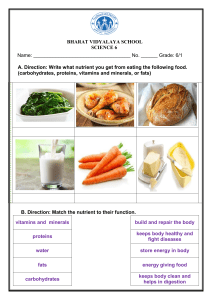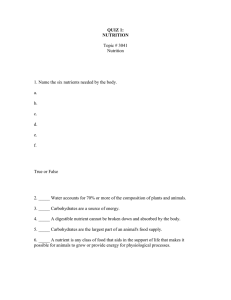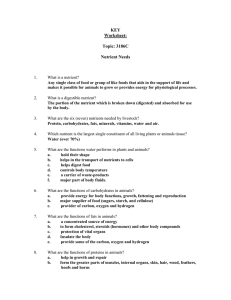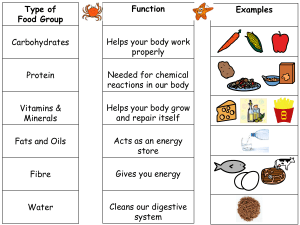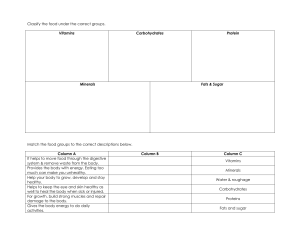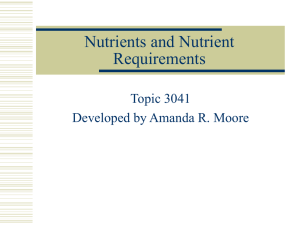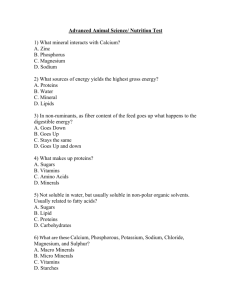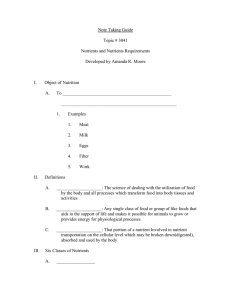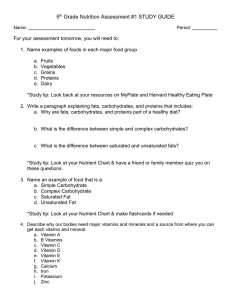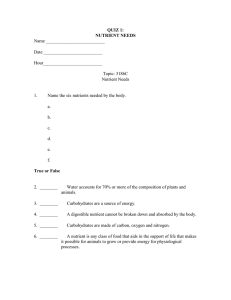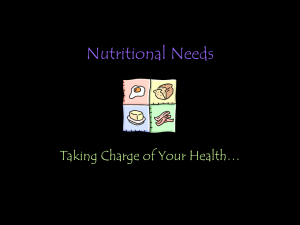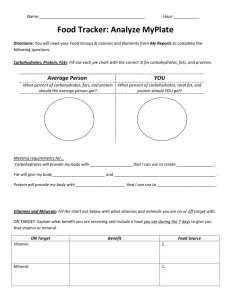Nutrition and Feeds Nutrient Needs
advertisement
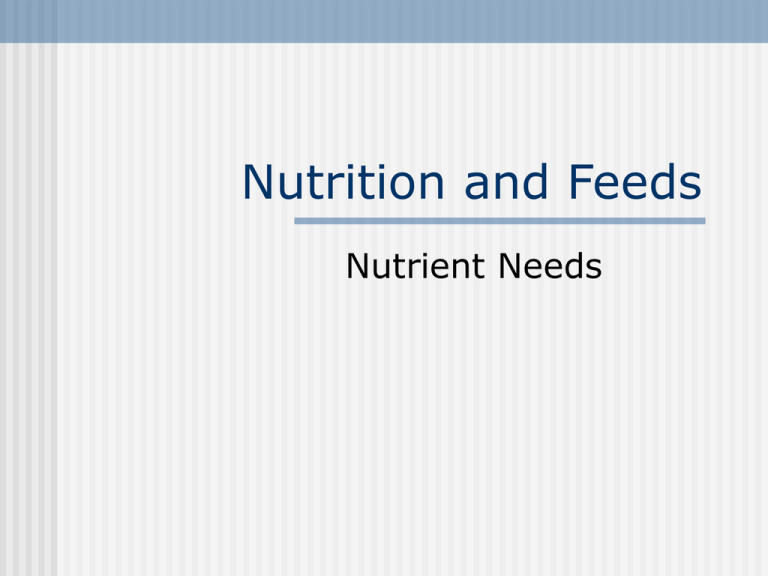
Nutrition and Feeds Nutrient Needs Nutrition Definition: The science of dealing with the utilization of food by the body and all body processes which transform food into body tissues and activities. Nutrient Definition: Any single class of food or group of like foods that aids in the support of life and makes it possible for animals to grow or provides energy for physiological processes. Digestible Nutrient That portion of the nutrient which may be broken down (digested), absorbed, and used by the body. Six Essential Nutrients Water Carbohydrates Fats Proteins Minerals Vitamins Water Accounts for 70% or more of the composition of most plants and animals Controls body temperature Enables living plants and animals to maintain their shape Involved in transport of nutrients at the cellular level Water cont. Helps in the digestion of feeds Serves as a carrier for waste products Major part of all body fluids Carbohydrates Furnish energy for body functions, growth, fattening, reproduction, etc. Largest part of an animal’s food supply Include sugars, starches, and fiber Made of carbon, oxygen, and hydrogen Fats Furnish a concentrated source of energy One lb. of fat is equal to 2.25 lbs. of carbohydrates Form cholesterol, steroids (hormones), and other body compounds Found in every cell in the body When absent from diet, affect the condition of skin and hair Fats cont. Made of carbon, oxygen, and hydrogen – contain much larger proportions of carbon and hydrogen than do carbohydrates Also provide: Energy reserves Protection for vital organs Insulate the body to environmental conditions and changes Proteins Essential in livestock feeding because they are needed throughout life for growth and repair. Help to form muscles, internal organs, skin, hair, wool, feathers, hoofs, and horns Contain carbon, hydrogen, oxygen, and about 16% of nitrogen Minerals Needed in nearly all parts of body Found primarily in bones and teeth Of total body minerals, Calcium makes up about 49% and Phosphorus makes up about 27% 99% of all body Calcium is found in bones and teeth Make up important parts of many organic materials (e.g., blood) Minerals cont. Heartbeat depends upon mineral balance to maintain its regularity Vitamins Needed in only minute amounts Essential for life and health Provide a defense against: Disease (Vitamin E) Promote growth (Vitamin D) and reproduction (Vitamin B12) Contribute to the general health of the animal
